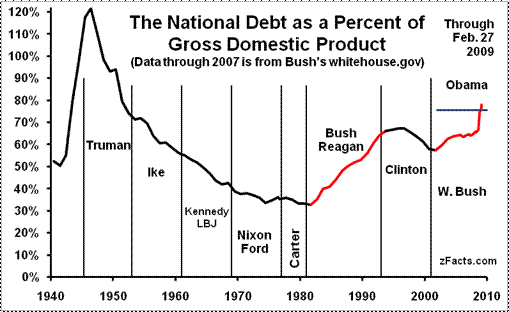
http://rationalrevolution.net/articles/recession_cause.htm
The incomes of the wealthiest Americans these past 30 years has been flat-out unearned and undeserved. It is the largest case of redistribution of wealth in this nation's history with the exception of the original redistribution of land from the Native Americans and the wealth gained through the use of slavery. It is a redistribution of wealth from the middle-class and working poor to the super-rich. Value created by working Americans, and indeed by workers around the world, has been taxed away from the working class, not by the government, but by capital owners. By R.G. Price, March 30, 2010
Alison Weir is executive director of If Americans Knew and president of the Council for the National Interest. See the “History of US-Israel Relations” for detailed citations for the above information. Additional references can be found in “How Palestine Became Israel.”
In 1947 the CIA reported that Zionist leadership was pursuing objectives that would endanger both Jews and “the strategic interests of the Western powers in the Near and Middle East.”
Truman Accedes to Pro-Israel Lobby President Harry Truman, however, ignored this advice. Truman’s political advisor, Clark Clifford, believed that the Jewish vote and contributions were essential to winning the upcoming presidential election, and that supporting the partition plan would garner that support. (Truman’s opponent, Dewey, took similar stands for similar reasons.)
Henry F. Grady, who has been called “America’s top diplomatic soldier for a critical period of the Cold War,” headed a 1946 commission aimed at coming up with a solution for Palestine. Grady later wrote about the Zionist lobby and its damaging effect on US national interests.
Grady argued that without Zionist pressure, the U.S. would not have had “the ill-will with the Arab states, which are of such strategic importance in our ‘cold war’ with the soviets.” He also described the decisive power of the lobby:
“I have had a good deal of experience with lobbies but this group started where those of my experience had ended..... I have headed a number of government missions but in no other have I ever experienced so much disloyalty”...... “in the United States, since there is no political force to counterbalance Zionism, its campaigns are apt to be decisive.”Kermit Roosevelt, Teddy Roosevelt’s nephew and a legendary intelligence agent, was another who was deeply disturbed by events, noting:
“The process by which Zionist Jews have been able to promote American support for the partition of Palestine demonstrates the vital need of a foreign policy based on national rather than partisan interests... Only when the national interests of the United States, in their highest terms, take precedence over all other considerations, can a logical, farseeing foreign policy be evolved. No American political leader has the right to compromise American interests to gain partisan votes...”He went on:
“The present course of world crisis will increasingly force upon Americans the realization that their national interests and those of the proposed Jewish state in Palestine are going to conflict. It is to be hoped that American Zionists and non-Zionists alike will come to grips with the realities of the problem.”The head of the State Department’s Division of Near Eastern Affairs, Gordon P. Merriam, warned against the partition plan on moral grounds:
“U.S. support for partition of Palestine as a solution to that problem can be justified only on the basis of Arab and Jewish consent. Otherwise we should violate the principle of self-determination which has been written into the Atlantic Charter, the declaration of the United Nations, and the United Nations Charter–a principle that is deeply embedded in our foreign policy. Even a United Nations determination in favor of partition would be, in the absence of such consent, a stultification and violation of UN’s own charter.”Merriam added that without consent, “bloodshed and chaos” would follow, a tragically accurate prediction.
...... Let us look at the specifics.
Background of the UN partition recommendation
In 1947 the UN took up the question of Palestine, a territory that was then administered by the British.
As this colonial project grew through subsequent years, the indigenous Palestinians reacted with occasional bouts of violence; Zionists had anticipated this since people usually resist being expelled from their land. In various written documents cited by numerous Palestinian and Israeli historians, they discussed their strategy: they would buy up the land until all the previous inhabitants had emigrated, or, failing this, use violence to force them out.
When the buy-out effort was able to obtain only a few percent of the land, Zionists created a number of terrorist groups to fight against both the Palestinians and the British. Terrorist and future Israeli Prime Minister Menachem Begin later bragged that Zionists had brought terrorism both to the Middle East and to the world at large.
Finally, in 1947 the British announced that they would be ending their control of Palestine, which had been created through the League of Nations following World War One, and turned the question of Palestine over to the United Nations.
At this time, the Zionist immigration and buyout project had increased the Jewish population of Palestine to 30 percent and land ownership from 1 percent to approximately 6 percent.
Since a founding principle of the UN was “self-determination of peoples,” one would have expected to the UN to support fair, democratic elections in which inhabitants could create their own independent country.
Instead, Zionists pushed for a General Assembly resolution in which they would be given a disproportionate 55 percent of Palestine. (While they rarely announced this publicly, their stated plan was to later take the rest of Palestine.)
http://www.ifamericansknew.org/history/realstory.html
No comments:
Post a Comment